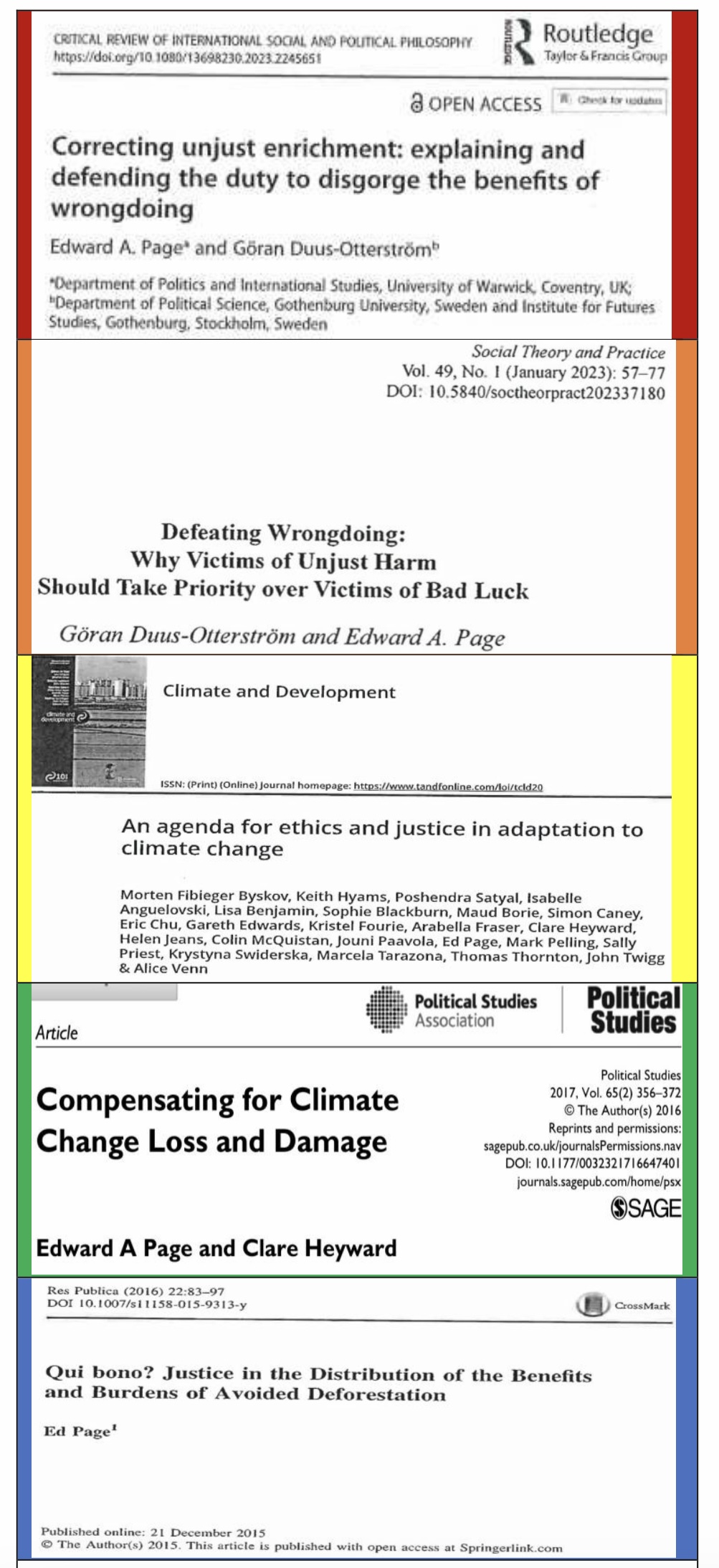Research

Current Research
My research interests cover a range of topics in contemporary political theory, global justice, and environmental ethics & policy. In particular, I am currently engaged on research on the issues of equity & social justice raised by global climate change and our response to it. I welcome PhD proposals and research collaboration in the following areas.
Ethics and politics of climate change
- Loss and Damage
- Justice in mitigation and adaptation
- Distributing the unexpected costs of climate policy
- Commodifying the atmosphere
Corrective and Distributive Justice
- Benefiting from injustice
- Wrongful harm, unlucky harm
- Currencies of distributive justice (welfare, resources, capabilities...)
- The pattern of distributive justice (equality, priority, sufficiency...)
Intergenerational and Environmental Justice
- The ethics of resource depletion
- Rights of unborn and future generations
- The non-identity problem
- Reciprocity between generations
